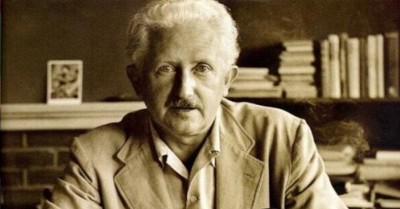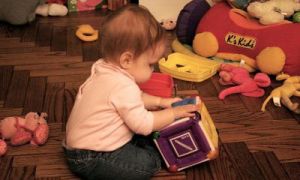Erik Erikson developed a psychosocial theory to understand how we each develop our identities through eight stages of psychosocial development from infancy to adulthood. The following article provides information on Erikson's Eight Stages, Eriksons Theories In Practice and more.
About
Erik Homburger Erikson (born Erik Salomonsen; 15 June 1902 – 12 May 1994) was a German-American developmental psychologist and psychoanalyst known for his theory on the psychological development of human beings. He may be most famous for coining the phrase identity crisis.
Eight Stages
During each stage, there is one important problem or issue to solve to develop a healthy sense of self. Failure to complete a stage can result in a reduced ability to complete further stages and therefore a more unhealthy personality and sense of self.

Trust versus Mistrust - Birth to 18 Months Old
Infancy correlates with Erikson’s first stage: trust versus mistrust. In this stage, the infant is beginning to interact and engage with the people they come into contact with to deal with the first crisis identified by Erikson. This crisis is to determine whether the infant should trust the world and the people in it or mistrust the world and its people.
The major emphasis is on the mother and father’s nurturing ability and cares for a child, especially in terms of visual contact and touch. The child will develop optimism, trust, confidence, and security if properly cared for and handled. If a child does not experience trust, he or she may develop insecurity, worthlessness, and general mistrust of the world.
Trust or mistrust in the world will be determined by the type of care the infant is receiving from the adults. Trust, like attachment, is built through our basic caregiving strategies. Feeding a hungry baby, cuddling and soothing a fearful baby and allowing the tired child to sleep, helps build trust.
Autonomy versus Shame and Doubt - 18 Months to 3 Years
In toddlerhood, the child is now moving to a new stage in their development. Erikson describes a new crisis that must be dealt with.
At this point, the child has an opportunity to build self-esteem and autonomy as he or she learns new skills and right from wrong. The well-cared-for child is sure of himself, carrying himself or herself with pride rather than shame. During this time of the “terrible twos”, defiance, temper tantrums, and stubbornness can also appear. Children tend to be vulnerable during this stage, sometimes feeling shame and low self-esteem during an inability to learn certain skills.
The toddler will learn that they are an autonomous, independent person who has control in their world or they will learn that making independent decisions is something to be ashamed of. This is often a challenging stage for many adults. Our first word is often ‘NO’. Being told ‘no’ all the time leads to feelings of shame and doubt. We need to ensure that we allow toddlers to make limited decisions. We will discuss decision-making in more detail later.
Outcomes of Autonomy
Toddlers who are encouraged to be autonomous and who receive appropriate caregiving strategies in this stage will:
- have a positive self-concept
- be eager to try new skills
- be independent
- be motivated to do things for self
- have a good relationship with the primary caregiver
- demonstrate self-help and self-care skills
- be confident
- trust in others
- want to explore their environment and new environments
- gain a sense of belonging
- be able to express feelings appropriately
- be curious
- come to the caregiver for support and reassurance
- show emotions in actions
- make simple demands
- gain mastery over their bodily functions
- want to do things alone
- be able to accept help and guidance
- take pride in their new skills
- learn that failure is a learning process
- be more self-sufficient
- be more sociable
- need confirmation and recognition of efforts.
Outcomes of Shame or Doubt
Alternatively, the child who is not allowed to explore their environment and who does not receive appropriate caregiving strategies for this stage of development will:
- doubt themselves and their capabilities
- often be withdrawn
- feel shame in the eyes of themselves and others
- or maybe disruptive
- demonstrate unrealistic fears
- be dependent on others
- feel worthless and have a low self-esteem
- demonstrate poor social skills
- have negative self-concepts
- lack motivation or have poor motivation to complete tasks
- often require lots of adult assistance
- demonstrate a lack of willingness to explore the environment
- often be unsociable
- demonstrate lots of frustration
- be lacking skills in all areas
- be unsure and lack confidence
- often lack mastery over bodily functions.
Initiative versus Guilt - 3 to 5 Years
During this period the child experiences a desire to copy the adults around and take initiative in creating play situations. Makeup stories with Barbie’s and Ken’s, toy phones and miniature cars, playing out roles in a trial universe, experimenting with the blueprint for what is to believe it means to be an adult. Children also begin to use that wonderful word for exploring the world—” WHY?”. The primary feature involves the child regularly interacting with other children at school.
Children begin to plan activities, make up games, and initiate activities with others. If given this opportunity, children develop a sense of initiative and feel secure in their ability to lead others and make decisions.
It is at this stage that the child will begin to ask many questions as his thirst for knowledge grows. If the parents treat the child’s questions as trivial, a nuisance or embarrassing or other aspects of their behaviour as threatening then the child may have feelings of guilt for “being a nuisance”.
Too much guilt can make the child slow to interact with others and may inhibit their creativity. Some guilt is, of course, necessary; otherwise, the child would not know how to exercise self-control or have a conscience.
A healthy balance between initiative and guilt is important. Success in this stage will lead to the virtue of purpose, while failure results in a sense of guilt.
Industry vs. Inferiority - 6 to 12 Years
Children are at the stage where they will be learning to read and write, to do sums, to do things on their own. Teachers begin to take an important role in the child’s life as they teach child-specific skills.
It is at this stage that the child’s peer group will gain greater significance and will become a major source of the child’s self-esteem. The child now feels the need to win approval by demonstrating specific competencies that are valued by society and begin to develop a sense of pride in their accomplishments.
As the world expands a bit, our most significant relationship is with the school and the neighbourhood. Parents are no longer the complete authorities they once were, although they are still important.
Identity vs. Role Confusion 12 to 18 Years
Teenagers explore who they are as individuals, and seek to establish a sense of self, and may experiment with different roles, activities, and behaviours.
At this point, development now depends primarily upon what a person does. An adolescent must struggle to discover and find his or her own identity while negotiating and struggling with social interactions and “fitting in”, and developing a sense of morality and right from wrong.
Some attempt to delay entrance to adulthood and withdraw from responsibilities (moratorium). Those unsuccessful with this stage tend to experience role confusion and upheaval. Adolescents begin to develop a strong affiliation and devotion to ideals, causes, and friends.
According to Erikson, this is important to the process of forming a strong identity and developing a sense of direction in life.
Intimacy vs. Isolation 18 to 35 Years
During this period, the major conflict centres on forming intimate, loving relationships with other people. Some also begin to “settle down” and start families, although seems to have been pushed back farther in recent years.
Success leads to strong relationships, while failure results in loneliness and isolation. Significant relationships at this stage are with marital partners and friends.
Generativity vs. Stagnation - 35 to 55 or 65
Career and work are the most important things at this stage, along with family. Middle adulthood is also the time when people can take on greater responsibilities and control.
Major life shifts can occur during this stage. For example, children leave the household, careers can change, and so on. Some may struggle with finding purpose. Significant relationships are those within the family, workplace, local church and other communities.
Ego Integrity vs. Despair 55 or 65 to Death
This stage takes place after age 65 and involves reflecting on one's life and either moving into feeling satisfied and happy with one's life or feeling a deep sense of regret.
Success at these stages leads to feelings of wisdom, while failure results in regret, bitterness, and despair. They may fear death as they struggle to find a purpose to their lives, wondering “What was the point of life? Was it worth it?”
Erikson's Theories in Practice
- As Educators, we form attachments with children.
- We respond warmly and consistently to babies’ needs.
- We talk gently to babies if we can’t pick them up or deal with their needs right away.
- Tune in to children’s interests and skill levels and offer just enough support to help them do things for themselves.
- Provide a variety of play experiences so children can explore and choose what to do.
- Never pressure a child into toileting before they are ready.
- Provide play spaces with lots of movable parts so children can organize and develop their play
- Invite children to contribute to the program, and what they want to do.
- Respect their play and give them time.
Erikson’s psychosocial theory of development considers the impact of external factors, parents and society on personality development from childhood to adulthood. According to Erikson’s theory, every person must pass through a series of eight interrelated stages over the entire life cycle[
References:
McLeod, S. A. (2018, May 03). Erik Erikson's Stages Of Psychosocial Development. Simply Psychology.
Child Theorists and Their Theories in Practice, Aussie Childcare Network
Erik Erikson, Wikipedia







 Toddlers have a greater understanding of the world around them by this stage. Their cognitive development (also known as intellectual development and thinking skills) continues
Toddlers have a greater understanding of the world around them by this stage. Their cognitive development (also known as intellectual development and thinking skills) continues Infants begin to develop trust when parents begin to fulfil their needs. Such as changing an infant's nappy when needed, feeding on request and holding
Infants begin to develop trust when parents begin to fulfil their needs. Such as changing an infant's nappy when needed, feeding on request and holding Beginning at birth the construction of thought processes, such as memory, problem solving, exploration of objects etc, is an important part of an infant’s cognitive
Beginning at birth the construction of thought processes, such as memory, problem solving, exploration of objects etc, is an important part of an infant’s cognitive Toddlers want to do more on their own and do not like it when you begin to establish limits on their behaviour. Tantrums can become
Toddlers want to do more on their own and do not like it when you begin to establish limits on their behaviour. Tantrums can become Your preschooler is now able to focus their attention more accurately and is less influenced by distractions. The intensity of questions increase as your child
Your preschooler is now able to focus their attention more accurately and is less influenced by distractions. The intensity of questions increase as your child John Dewey is often seen as the proponent of learning by doing – rather than learning by passively receiving. He believed that each child was active,
John Dewey is often seen as the proponent of learning by doing – rather than learning by passively receiving. He believed that each child was active, Toddler advance and gains new skills in Gross Motor Development milestones achieved throughout earlier years. Co-ordination and challenges that could not be performed before such
Toddler advance and gains new skills in Gross Motor Development milestones achieved throughout earlier years. Co-ordination and challenges that could not be performed before such Erik Erikson developed a psychosocial theory to understand how we each develop our identities through eight stages of psychosocial development from infancy to adulthood. The
Erik Erikson developed a psychosocial theory to understand how we each develop our identities through eight stages of psychosocial development from infancy to adulthood. The At this point preschoolers begin to interact effectively with others. Play becomes more innovative and organized and “boyfriend” or “girlfriend” begins to emerge. Preschoolers have
At this point preschoolers begin to interact effectively with others. Play becomes more innovative and organized and “boyfriend” or “girlfriend” begins to emerge. Preschoolers have From now, babies begin to identify and respond to their own feelings, understanding other's feelings & needs and interact positively with others. A baby's social and
From now, babies begin to identify and respond to their own feelings, understanding other's feelings & needs and interact positively with others. A baby's social and


